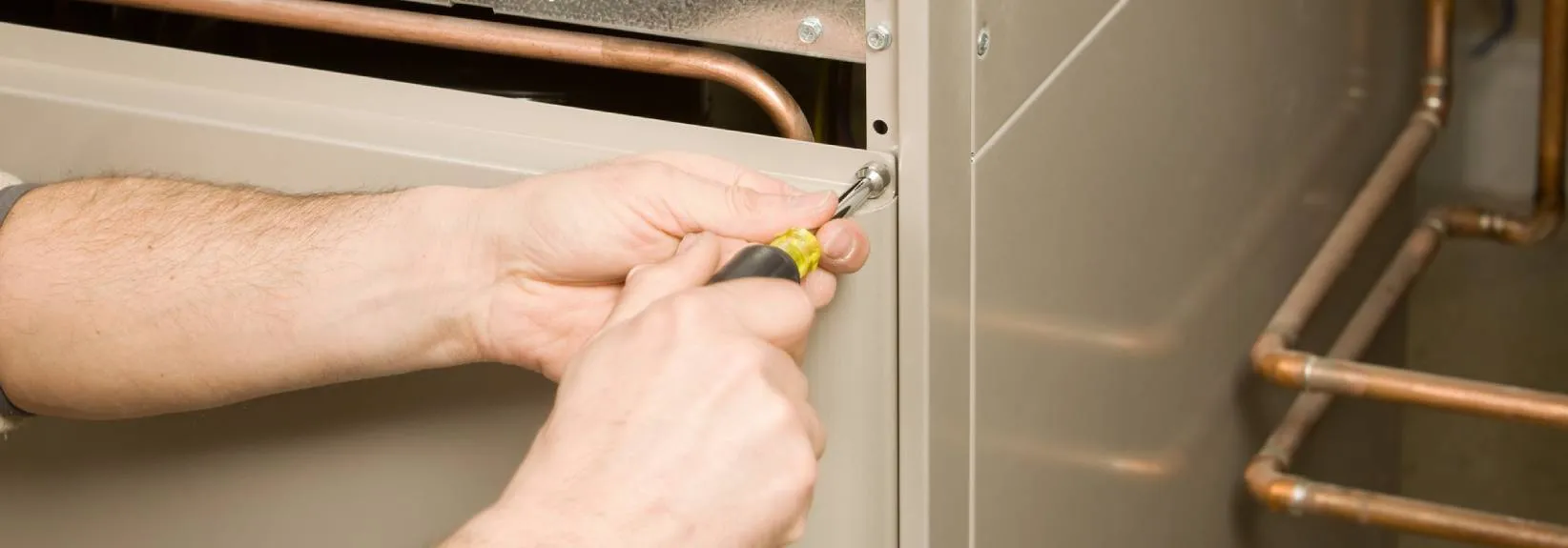If You’re in the Market for a New Furnace, Here’s Why You Should Be Looking at a Heat Pump
If you’d like to replace your old furnace, don’t move forward thinking a new furnace is the only option. This may be the default choice for most North American households, but heat pumps are becoming increasingly popular. Still, the question remains: Is a heat pump your ideal heating system? Explore several persuasive reasons to consider a heat pump, how it differs from a traditional furnace and whether a heat pump is the most efficient choice for your home comfort needs.
How Are Heat Pumps Different Than Furnaces?
The core design between a heat pump and a traditional furnace is essentially different. Furnaces burn combustible substances such as natural gas, oil or propane to generate heat. On the other hand, heat pumps use electricity and refrigerant to move heat. This fundamental difference influences the equipment’s efficiency, environmental impact and versatility.
Modern condensing furnaces have high AFUE ratings, which is undoubtedly appealing. But an AFUE rating only illustrates the furnace’s ability to convert fuel to heat—it doesn’t account for the full energy footprint involved in the extraction, refining and transportation of the fuel.
In comparison, a heat pump’s efficiency is measured by its HSPF. While it’s difficult to compare these numbers at first glance, be aware that heat pumps often perform better than furnaces.
Top Reasons to Install a Heat Pump
Here’s why more and more homeowners are considering a heat pump for their year-round heating and cooling needs.
1. Lower Energy Bills
The operating cost is one of the first things homeowners worry about when considering a new home appliance. Furnaces can be quite efficient, but they max out at about 98% efficiency. On the other hand, heat pumps are capable of providing three times the heat energy than the electrical energy consumed during the process. In other words, heat pumps can be 300% efficient under ideal operating conditions. This cost-efficient performance leads to more manageable utility bills.
H3: 2. Eco-Friendly Heating
Your household’s environmental footprint could be more reduced with a heat pump. While electric furnaces can be found, traditional gas-fired furnaces run on natural gas or oil, the production and distribution of which negatively impacts the planet. A heat pump operates without burning fuel, reducing your home’s environmental impact, particularly if you also have solar panels to create cleaner electricity from the sun.
3. Heating and Cooling Versatility
One of the most striking features of a heat pump is its dual heating and cooling functionality. It’s an effective wintertime heater and doubles as your air conditioner during the summer. Thanks to a simple built-in switch, the heat pump reverses its operation and extracts warm air from your home, much like a standard AC unit. This dual-purpose solution appeals to many homeowners.
4. Quiet Operation
Heat pumps run with less noise than traditional furnaces as they don’t have to combust fuel to generate heat. No combustion means reduced noise, resulting in a more peaceful living space.
5. Easy Transition
If your home is already equipped with ductwork, transitioning to a heat pump is fast and easy. The air handler goes where your furnace is currently located, and the outdoor unit replaces your air conditioner. It’s just that easy.
Are Heat Pumps Right for Everyone?
While heat pumps are innovative and energy efficient, they may not fit every situation. Heating efficiency is much more limited in extreme cold, making heat pumps less ideal in regions with long, cold winters. At the same time, advancements in cold-climate technology are making heat pumps more viable in colder climates, so keep your eye out for models designed to continue working in these kinds of climates.
It’s also worth pointing out that the up-front cost of purchasing a high-quality heat pump is generally higher than a traditional furnace. However, it also means you won’t have to buy an air conditioner. If both systems are getting older, you may actually save money up front by swapping them with a heat pump. Plus, you’ll recoup any investment cost through lower energy bills over time.
If your home doesn’t already have the necessary ductwork, adding it increases your up-front costs. But furnaces need ductwork too, so this doesn’t necessarily favor opting for a furnace over a heat pump. In fact, ductless heat pumps are available for older homes and additions where ductwork isn’t present.
Finally, a heat pump’s efficiency benefits start to fall off if you live in an area with higher than average electricity costs. You can counteract this by putting up solar panels, which generate electricity from the sun to power your heat pump and many other electrical systems.
Choose Enercare A1 Chesney
Still not sure if a heat pump is ideal for you? Consult Enercare A1 Chesney, and our Experts can help you figure out if a heat pump meets your heating and cooling needs. Then, whether you opt for a heat pump or a traditional furnace, we can set up your new system above and beyond your expectations. Contact us today to request a free installation estimate.



